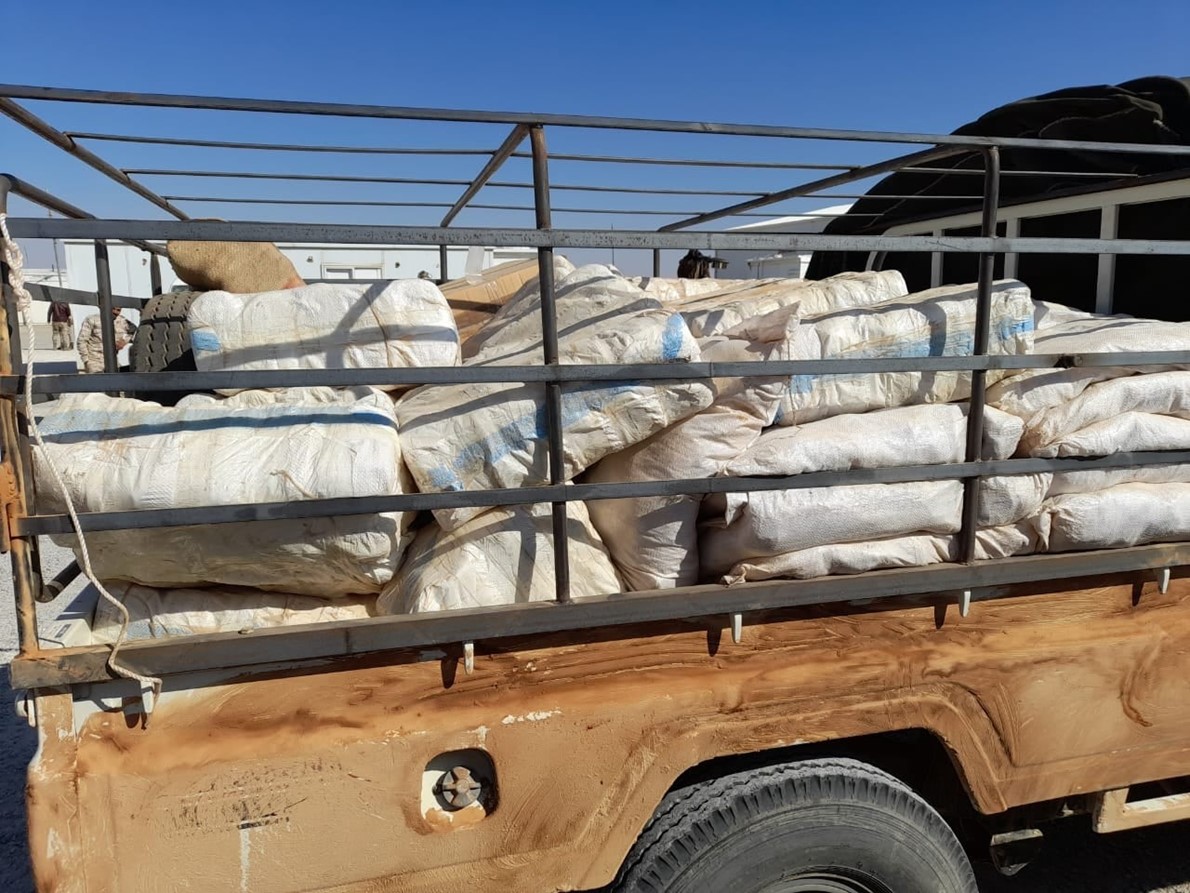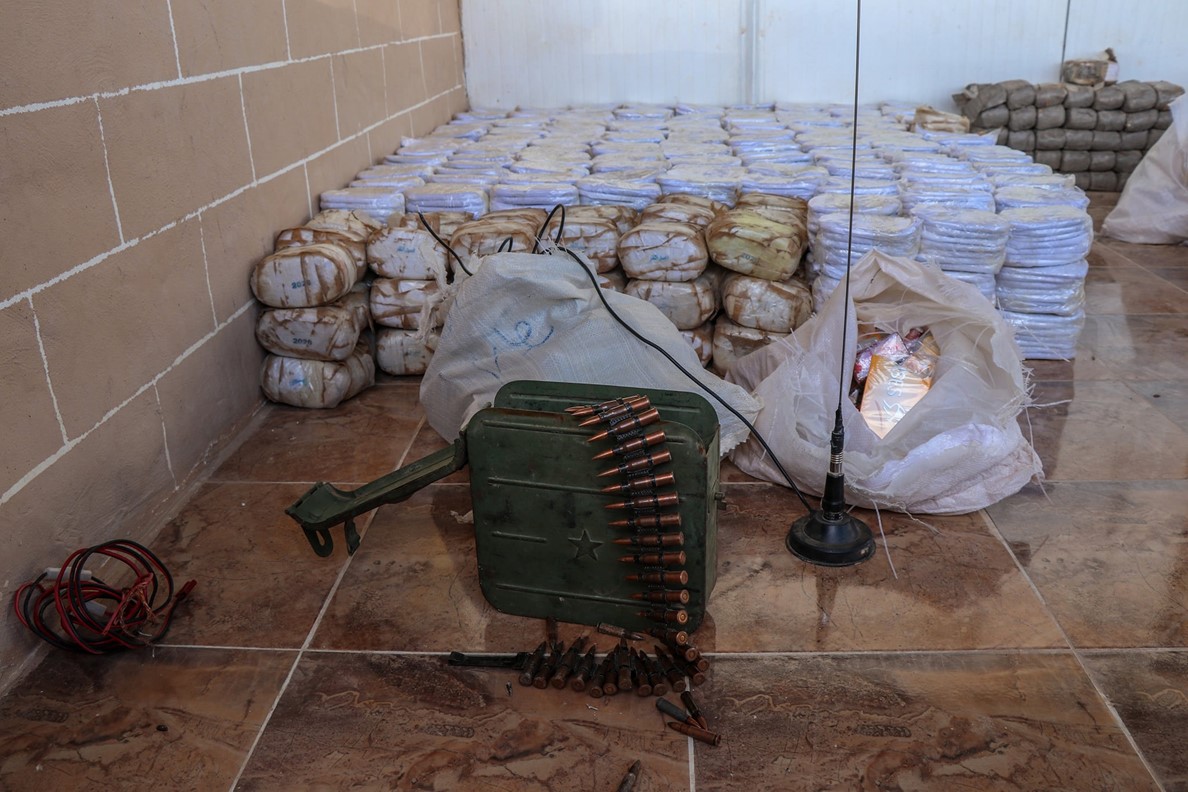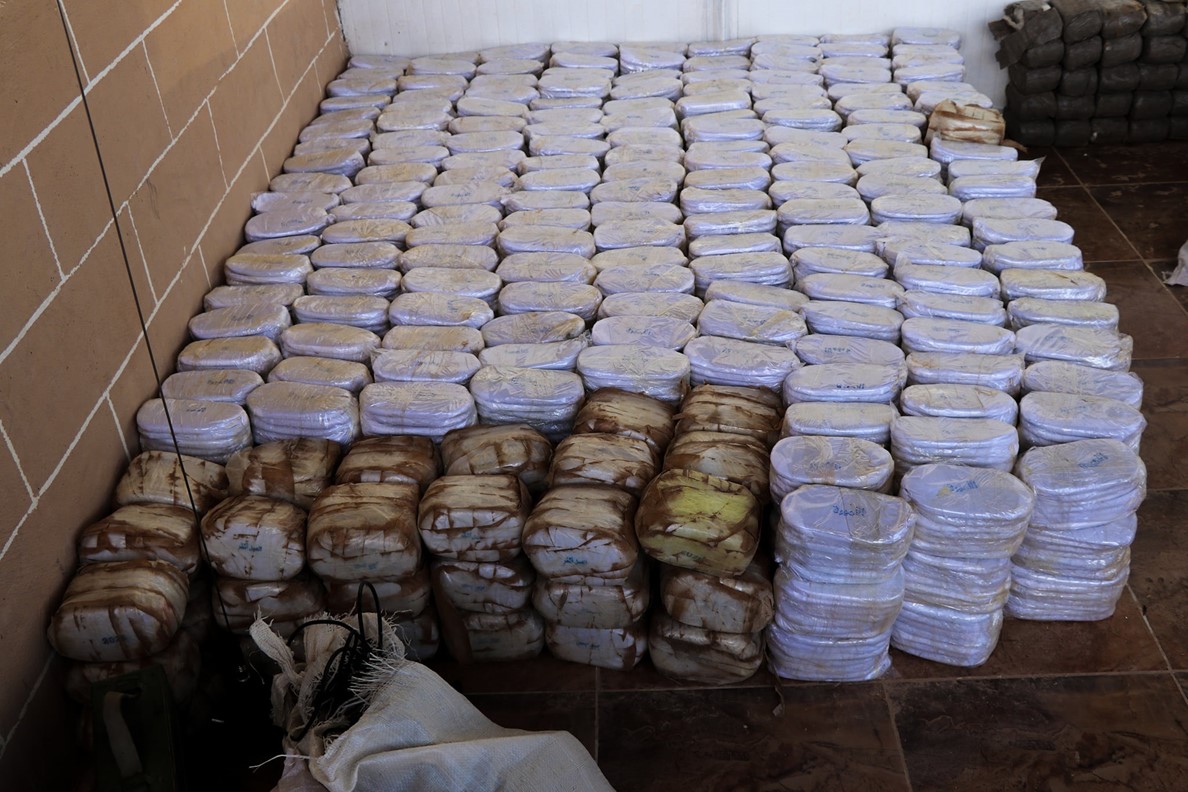Last month,
nearly 16 million Captagon pills, an amphetamine-type stimulant that is quickly
becoming one of the Middle East’s most ubiquitous narcotics, were seized by
Iraqi security forces in three separate raids. It was a massive haul of illicit
drugs.
اضافة اعلان
Yet, it was also
a fraction of the region’s illegal trade, a criminal enterprise that Iraqi Popular
Mobilization Units (PMU), state-sponsored militias, is facilitating by
protecting those involved.
The majority of
Iraq’s Captagon comes from neighboring Syria, which is the main producer of the
pills in the Levant. To combat the surge in Captagon trafficking into the
country, Iraqi authorities have scaled up enforcement, a welcome change after
years of turning a blind eye. However, these efforts will almost certainly fail
if the PMU’ involvement in the drug industry continues unabated.

For now, the Captagon
crisis is getting worse. During April alone, Iraqi security forces reported
record levels of drug seizures. On April 5, police in Anbar intercepted a
smuggler who illegally crossed the border from Syria with 1.8 million pills. A
few weeks later, Iraqi forces found 8 million pills hidden in a truck heading
to Baghdad from Syria. And on April 30, Iraqi security forces broke up a drug
trafficking ring and seized 6.2 million pills of Captagon set for distribution
in the country.
Iraq, like
Lebanon and Jordan, has long been used as a transiting corridor for Captagon
from Syria to Saudi Arabia. The country’s importance for Syria’s illicit
business – valued at more than $5.7 billion – has grown significantly over the
past year due to the increased difficulty in shipping drugs through Lebanon.
Saudi Arabia’s ban in April 2021 on imports of fruits and vegetables from
Lebanon pushed smuggling networks to increase their reliance on Jordan and
Iraq.
The surge in
regional smuggling operations is evident in the number of narcotics confiscated
by the authorities. In the first four months of 2022, the Jordanian army
intercepted 17 million pills of Captagon, compared to 15.5 million pills seized
in all of 2021 and 1.4 million in 2020. The surge in illegal activity, along
with the killing of a Jordanian soldier, prompted Jordan to increase its
anti-drug measures along its border with Syria and to employ a shoot-to-kill
policy, which has increased the risks smugglers face.

Iraq, as a
result, is attracting more smuggling traffic, a surge it is not prepared to
handle. The country lacks trained counter-narcotics forces and modern equipment
for its border crossings and airports. In addition, the PMU, which have a
strong presence on both sides of the Syria-Iraq border, are directly involved
in facilitating drug smuggling to Iraq. Besides having a strong grip over Al
Qaim official border crossing, the PMU run dozens of unofficial makeshift
corridors between the two countries – including crossings at Al Sikak, Akashat,
Hwaijeh, and Al Sanjak.
Failing to rein in these profiteers will render all other anti-drug measures in Iraq ineffective, enable Syria’s Captagon industry to grow exponentially, and pose an increasing health and security risk to Iraq, the region, and beyond.
Moreover, as I
have seen during fieldwork for my research, many groups are involved in
enabling drug operations between Syria and Iraq, including Harakat Al Abdal,
Liwa Al Tafuf, and Asaib Ahl Alhaq (also known as the Khazali Network). However,
Kataib Hezbollah reportedly has the most influence over this illicit
trafficking business.
I also found
that most drug trafficking is done in coordination with smugglers, which gives
the armed factions plausible deniability if these shipments are intercepted by
the authorities. After securing transportation for the narcotics inside Syria,
smugglers move the illicit substances to Iraqi trucks in coordination with the
respective armed groups. In exchange for safe passage, the Iraqi factions
charge fees based on the size of the shipment.
PMU have even
used their political connections to arrange for the release of drug traffickers
and dealers who have been arrested. While most of these instances go unnoticed
by the media, a case did recently make headlines. Jawad Louay Al Yasseri, whose
father was then governor of the central province of Najaf, was convicted of
drug trafficking in 2018 when 5.6 kilograms of cannabis and 7,000 narcotic
pills were found in his possession during the arrest. Despite being sentenced
to life in prison, Yasseri and two fellow defendants in the case were quietly
granted a presidential pardon and released in January.

Given such
nepotism and corruption, it is clear that Iraq’s narcotics problem will not be
solved without addressing the PMU’ role in drug trafficking. Failing to rein in
these profiteers will render all other anti-drug measures in Iraq ineffective,
enable Syria’s Captagon industry to grow exponentially, and pose an increasing
health and security risk to Iraq, the region, and beyond.
The writer is a Syrian columnist and a consulting
associate fellow of Chatham House’s Middle East and North Africa program.
Read more Opinion and Analysis
Jordan News







